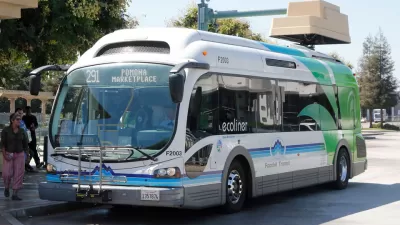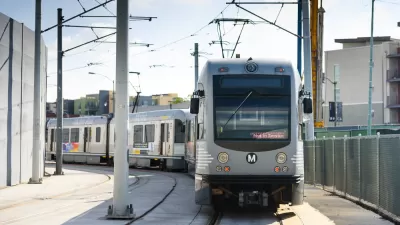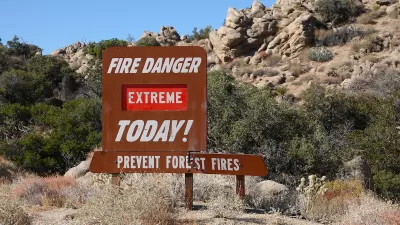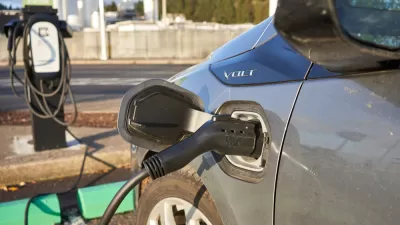A new survey identified the top climate strategies favored by municipalities around the country.

Nearly 60 percent of cities told a national survey they are planning a climate action in the coming year, and 60 percent said they had launched or expanded a climate program in the last year. The survey was conducted by the Center for Climate and Energy Solutions and the U.S. Conference of Mayors, and covered 158 cities of different sizes across 39 states.
Transportation, a top source of greenhouse gas emissions in the country, was one of the most common areas for local green initiatives. Most cities are already promoting bus transit and bike lanes as alternatives to driving, while cities looking to expand transportation options are primarily considering bike- and scooter-sharing. Jason Plautz in Smart Cities Dive summarizes other common initiatives:
City-level action has taken the form of green vehicle purchasing (according to the USCM survey, 60% of cities have clean vehicle programs), energy efficiency for buildings (70% of cities have set policies for new and existing buildings) and adoption of alternative transportation options (22% of respondents are exploring bike-sharing). Renewable energy purchasing remains a dominant strategy, especially since cities often have greater control over their utility contracts.
The survey also notes that nearly all cities reported seeing the impacts of climate change first-hand. "The most prevalent changes cities reported during this time include heavy rain events or inland flooding (76 percent of cities), heat waves (65 percent), and drought (51 percent). Additionally, an alarming 18 percent identified wildfires as a changing impact," the report says.
FULL STORY: Survey: 57% of cities plan climate action in next year

Planetizen Federal Action Tracker
A weekly monitor of how Trump’s orders and actions are impacting planners and planning in America.

Restaurant Patios Were a Pandemic Win — Why Were They so Hard to Keep?
Social distancing requirements and changes in travel patterns prompted cities to pilot new uses for street and sidewalk space. Then it got complicated.

Map: Where Senate Republicans Want to Sell Your Public Lands
For public land advocates, the Senate Republicans’ proposal to sell millions of acres of public land in the West is “the biggest fight of their careers.”

Maui's Vacation Rental Debate Turns Ugly
Verbal attacks, misinformation campaigns and fistfights plague a high-stakes debate to convert thousands of vacation rentals into long-term housing.

San Francisco Suspends Traffic Calming Amidst Record Deaths
Citing “a challenging fiscal landscape,” the city will cease the program on the heels of 42 traffic deaths, including 24 pedestrians.

California Homeless Arrests, Citations Spike After Ruling
An investigation reveals that anti-homeless actions increased up to 500% after Grants Pass v. Johnson — even in cities claiming no policy change.
Urban Design for Planners 1: Software Tools
This six-course series explores essential urban design concepts using open source software and equips planners with the tools they need to participate fully in the urban design process.
Planning for Universal Design
Learn the tools for implementing Universal Design in planning regulations.
Heyer Gruel & Associates PA
JM Goldson LLC
Custer County Colorado
City of Camden Redevelopment Agency
City of Astoria
Transportation Research & Education Center (TREC) at Portland State University
Camden Redevelopment Agency
City of Claremont
Municipality of Princeton (NJ)





























